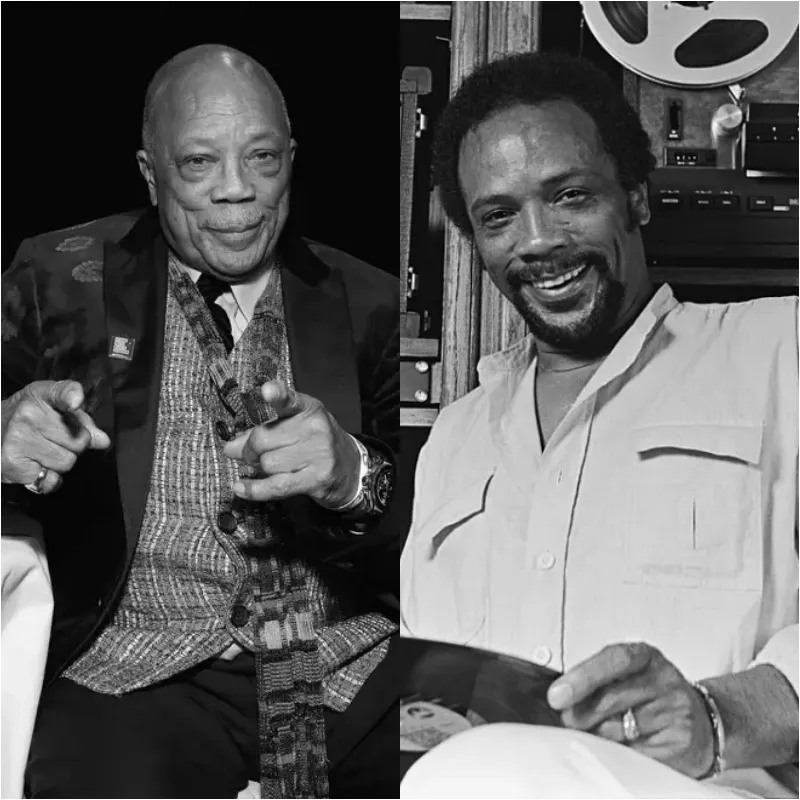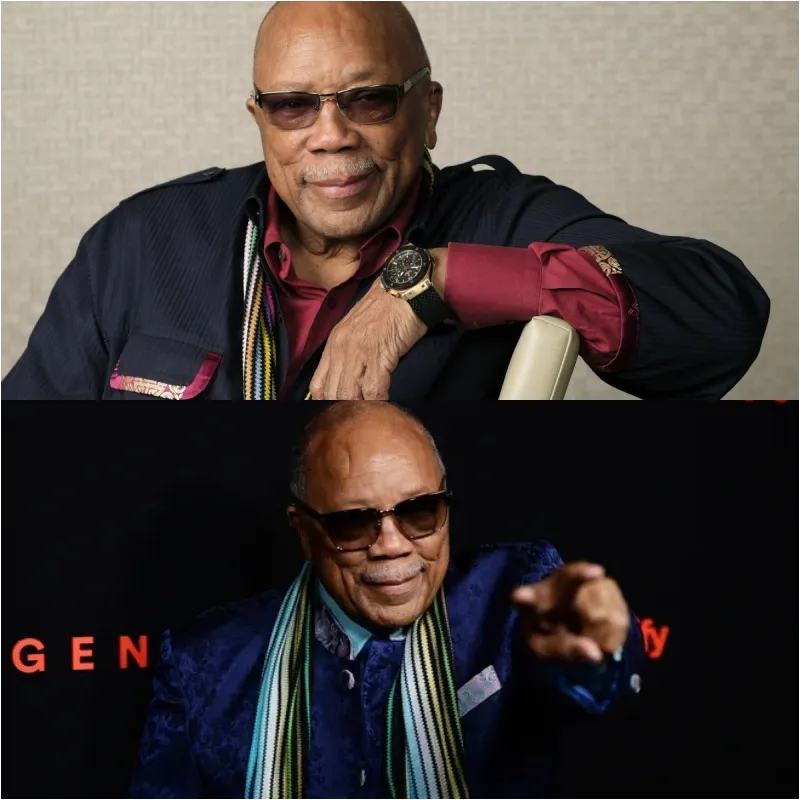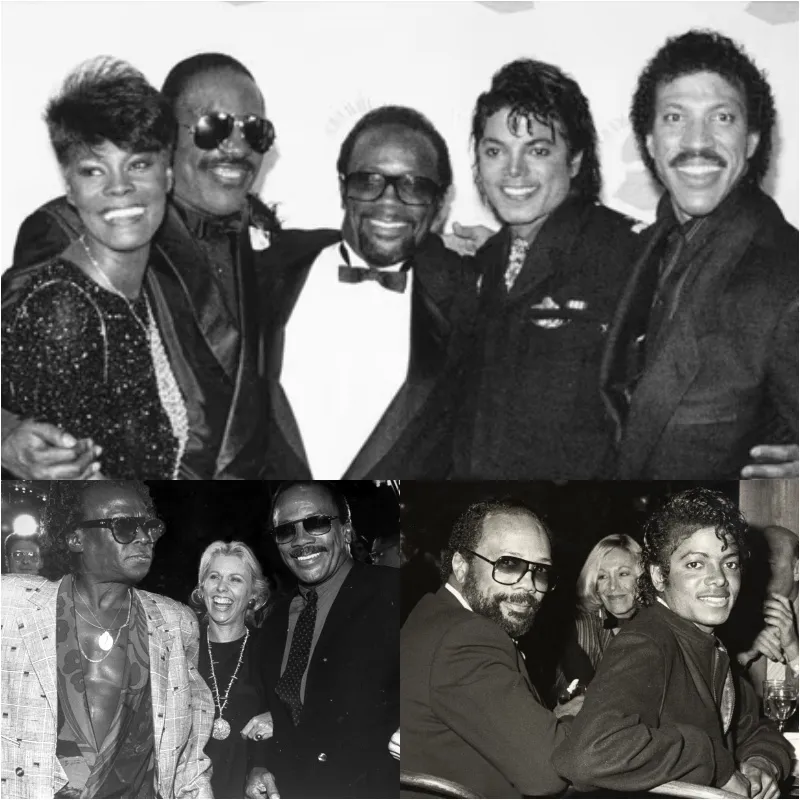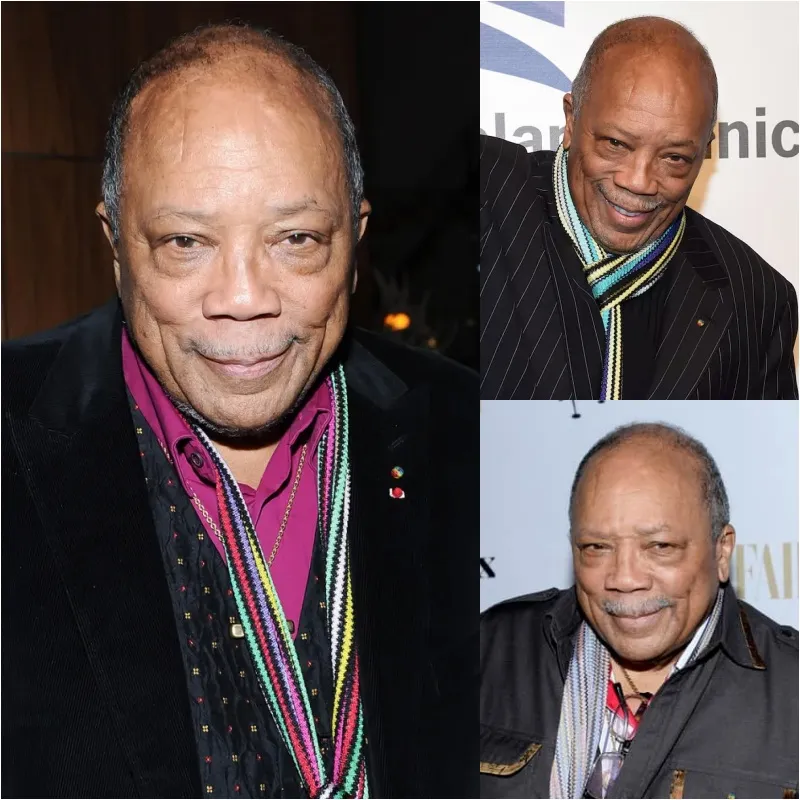
Quincy Jones, the legendary music producer who shaped the sounds of stars like Frank Sinatra and Michael Jackson, passed away at age 91. His spokesman, Arnold Robinson, confirmed that Jones died peacefully on November 3, surrounded by family at his Bel Air home in Los Angeles. Although the cause of death was not disclosed, the news marked a tremendous loss to the music industry.
“It is with a heavy heart that we share the news of Quincy Jones’ passing. His life was extraordinary, and there will never be another like him,” stated a family representative.

From Humble Beginnings to a Monumental Career
Born in Chicago in 1933, Jones’ early life was rooted in music. Following his parents’ divorce, he moved to Washington state with his father. During high school, he immersed himself in music, learning multiple instruments and eventually performing with Ray Charles in Seattle clubs. He later attended Seattle University and then continued his studies in Boston. By the late 1950s, Jones’ solo career began to take flight, leading a jazz band with talents like Charles Mingus, Art Pepper, and Freddie Hubbard.
Renowned for his versatility, Jones left an indelible mark on pop culture, with The Guardian once describing him as the “most talented pop culture figure of the 20th century.” His collaboration with Michael Jackson on iconic albums Off the Wall, Thriller, and Bad in the 1980s propelled Jackson to international fame and established Jones as a powerhouse producer. Jones also worked with musical legends such as Aretha Franklin, Donna Summer, and Count Basie, leaving a lasting impact across genres.

A Pioneer in Music and Film
Jones’ partnership with Frank Sinatra began in 1958, when Grace Kelly hired him to organize the band for a Sinatra-led charity event. Their collaboration continued for years, culminating in Sinatra’s final album, LA Is My Lady (1984). However, Jones’ career reached new heights with Michael Jackson’s Thriller, which remains the best-selling album of all time, with over 110 million copies sold. Jones’ production on tracks like “Billie Jean” and “Don’t Stop ‘Til You Get Enough” showcased his talent for blending disco, funk, rock, pop, R&B, jazz, and African influences, solidifying Jackson’s “King of Pop” status.
In 1985, Jones produced We Are the World, the iconic charity single for Ethiopian famine relief. Co-written by Lionel Richie, who called Jones a “master arranger,” the song united the world in support of a cause, further cementing his influence beyond music alone.
Jones also composed scores for numerous films, becoming the first African American to be nominated for an Oscar for Best Original Song in 1968 with “The Eyes of Love” from Banning. Throughout his career, he received seven Oscar nominations and became the first Black music director for the Academy Awards in 1971. His work in television included producing the hit sitcom The Fresh Prince of Bel-Air, which launched Will Smith’s career. Even in his later years, Jones launched Qwest TV, an on-demand streaming service for music lovers.
Awards and Legacy
Jones’ contributions to music and culture earned him prestigious awards, including the Legion of Honor from France, the Rudolph Valentino Award from Italy, and a Kennedy Center Honor for his impact on American culture. With 80 Grammy nominations—only behind Beyoncé and Jay-Z—he claimed 28 Grammy wins. His life story was documented in Listen Up: The Lives of Quincy Jones (1990) and Quincy, a 2018 documentary co-directed by his daughter Rashida Jones.

Advocacy and Personal Life
Outside of music, Jones dedicated himself to community service. He was an advocate for HIV/AIDS awareness, youth education, and poverty relief worldwide. Through his Listen Up! Foundation, he aimed to connect young people with music, culture, and technology.
Jones narrowly escaped death twice. He avoided being present at Sharon Tate’s house on the night of the Manson murders in 1969, and he survived a brain aneurysm in 1974 that prevented him from playing the trumpet due to risk of re-injury. Despite these challenges, he continued to shape the music industry and culture with resilience.
Jones was married three times, first to his high school girlfriend Jeri Caldwell, then to Ulla Andersson, and later to actress Peggy Lipton, with whom he shared two daughters. He had two additional children from other relationships.
Quincy Jones’ legacy is one of unparalleled influence and talent, remembered as a true visionary who redefined music and brought people together through his art.



